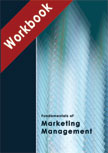



Abstract:
|
This case is about the various branding initiatives adopted by the world's largest semiconductor company Intel Corporation (Intel) that contributed to its maintaining its position as one of the world's top global brands. While the case focuses on the
'Sponsors of Tomorrow' global branding campaign launched in May 2009, it also provides a background on all the successful campaigns launched by the company over the years.
'Sponsors of Tomorrow' was a multi-million dollar campaign that sought to promote the
'Intel' brand as opposed to its microprocessor chipsets. The campaign comprised TV commercials that included teaser promos featuring actors who played Intel's engineers. It was backed by print, online, and outdoor elements.
|

|
Prior to launching this campaign, Intel aggressively marketed
its microprocessors to consumers when they were unaware of what a microprocessor
meant and its significance to their Personal Computer (PC). Intel launched
several noteworthy branding campaigns, the most popular being the 'Intel Inside'
campaign where it convinced consumers to buy PCs equipped with Intel's
microprocessors, in 1991. After the unprecedented success of this campaign,
Intel continued to launch several other branding campaigns that sought to
promote its products such as the Bunny People ad campaign that featured Intel's
engineers in bunny suits for marketing its Intel MMX technology, in 1997,
followed by Blue Man Group ads for promoting its Pentium and Celeron processors,
in 2001.
Intel also used humor as an element for promoting its Centrino mobile technology
platform, in 2005. The company also rebranded itself by launching the 'Leap
Ahead' campaign in 2005 to signify the leap it had taken in technology, in
education, manufacturing, and social responsibility. This was followed by the 'Multiply' campaign to promote its Core 2 Duo processors, in September 2006.
Despite achieving unprecedented success through these campaigns, Intel went
ahead with launching the 'Sponsors of Tomorrow' campaign that focused on
promoting the 'Intel' brand.
The 'Sponsors of Tomorrow' campaign received mixed reactions from experts. Some
experts opined that for years, Intel had been focusing on its successful
products; however, with this new campaign it had established an emotional
connection with the customers. It also credited the engineers behind Intel's
technology. Moreover, they felt that the ad voiced optimism about the future in
the backdrop of the global economic slowdown. On the other hand, some critics
felt that the campaign would not strike a chord with the audience and would not
help Intel's bottom line. They also added that the campaign had been launched to
offset the € 1.06 billion fine imposed by the European Union for its alleged
anti-trust business practices in the European microprocessors market.
Issues:
» Understand the issues and challenges in launching a global branding
campaign.
» Understand the issues and challenges in branding a component or ingredient
branding.
» Analyze the earlier branding campaigns adopted by Intel that contributed to
its becoming one of the top global brands.
» Analyze the 'Sponsors of Tomorrow' branding campaign that sought to promote
the 'Intel' brand as opposed to its products.
» Explore further branding strategies that Intel could adopt to maintain and
enhance its position among global brands.
Contents:
Keywords:
Marketing communications, Branding campaign, Rebranding, Promotions, Advertising, Teaser ad, Print ads, Online ad, Integrated marketing, Brand Structure,
'Intel Inside' campaign, 'Leap Ahead' campaign, 'Sponsors of Tomorrow' campaign, Intel, Advanced Micro Devices, AMD
Intel's 'Rock Star'
- Next Page>>
|
|










